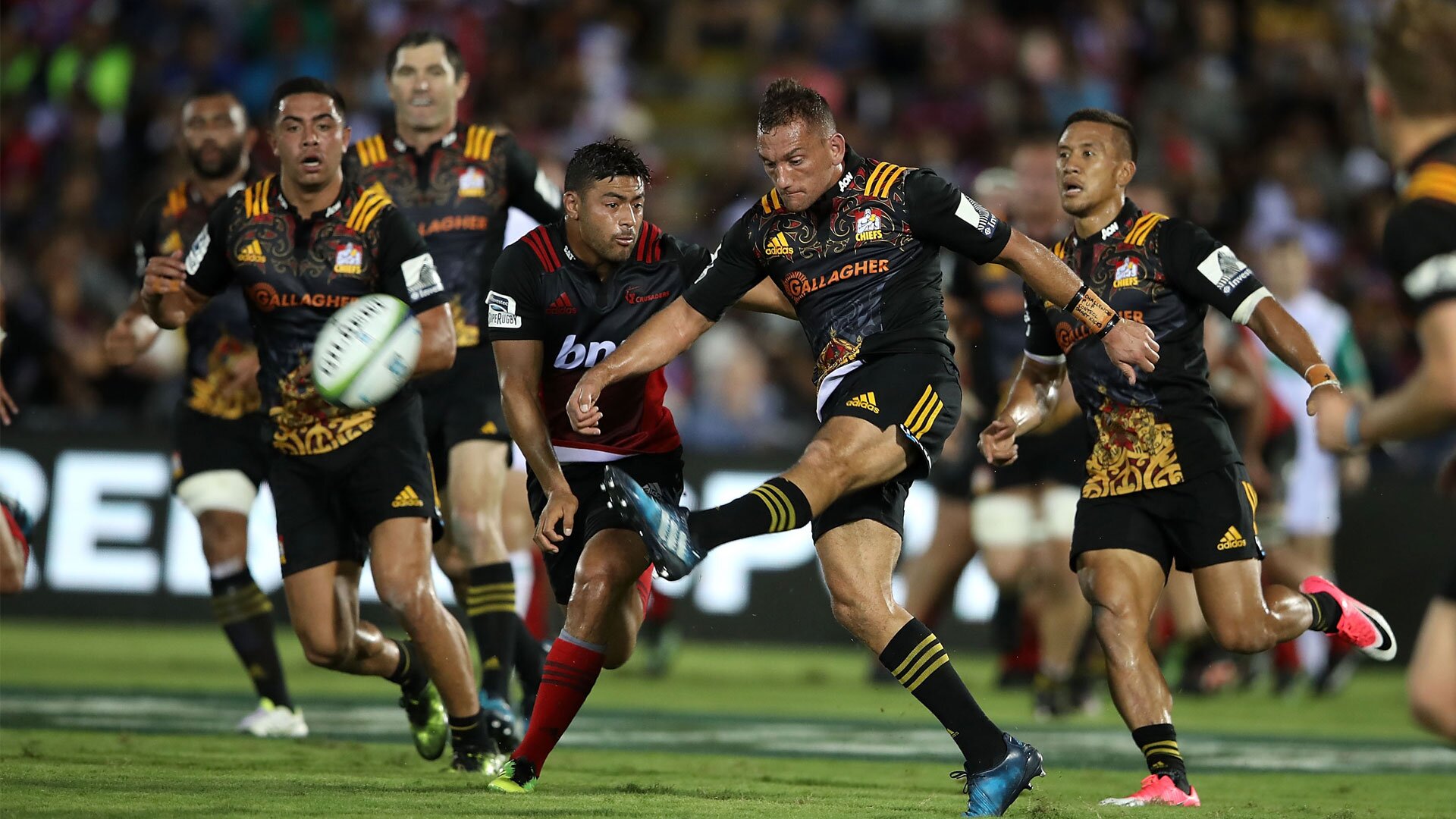Aaron Cruden to make surprise Super Rugby return in 2020?

The ongoing battle for first fives looks set to continue in New Zealand, with Aaron Cruden now reported to be close to signing a deal with the Chiefs.
Stuff has reported that Cruden and the Chiefs are into the late stages of sussing out a contract which would see the former All Blacks return for the 2020 season.
It’s long been expected that Cruden will shift from the south of France to Japan in the coming year, after a number of injury-riddled seasons for Montpellier.
Supposedly, Cruden’s future contract with Kobe won’t commence until the 2021 Top League season – but his current deal with Montpellier will come to a conclusion at the end of the World Cup. That gives Cruden plenty of time to link up with his old Super Rugby franchise.
2020 is shaping up as an eventful season for the New Zealand Super sides.
Beauden Barrett will shift from the Hurricanes to the Blues but won’t be available until the end of the 2020 Top League season, which finishes on May 9. That means one of Harry Plummer, Otere Black or Stephen Perofeta will be handed the 10 jersey until at least the latter stages of the tournament.
Barrett’s move north means the Hurricanes are lacking an experienced option at first five – though both Jackson Gardon-Bachop and Fletcher Smith are still on the books. The Wellington-based team have been scouring the globe for a replacement for Barrett and it’s believed that Cruden, who made his Super Rugby debut for the Hurricanes, was high on their list of targets.
It’s understood that Cruden would only be interested in making a return if it was for the Chiefs, however, who helped him cement his spot in the All Blacks.
The Chiefs currently have just Damian McKenzie signed on for next season with their other three first five options, Marty McKenzie, Jack Debreczeni and Tiaan Falcon, all off-contract. McKenzie, who spent most of the season on the sidelines thanks to an ACL injury, has spoken of his preference to play at fullback, however.
Warren Gatland, who will take over as head coach of the Chiefs from next year, will be on the lookout for a young first five who can spearhead the Waikato side’s attack for the coming years – but a seasoned pro will also be required. Cruden would fit the bill for that latter category and could help ease an up-and-comer into Super Rugby.
Rivez Reihana has shown plenty of promise for Waikato in this year’s Mitre 10 Cup but has been used exclusively at fullback. Other options include re-contracting Falcon – who is just 22 – or trying to lure one of the Blues’ trio south.
Elsewhere around the country, Mitch Hunt will head to the Highlanders in search of more game time. He’s stuck behind Richie Mo’unga at the Crusaders and Brett Cameron is likely the next in line to the throne.
Hunt will compete with Josh Ioane for the starting role at the Highlanders but could find himself shifted to the back to cover for Ben Smith, who is heading to France next year.





























